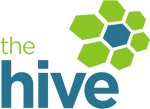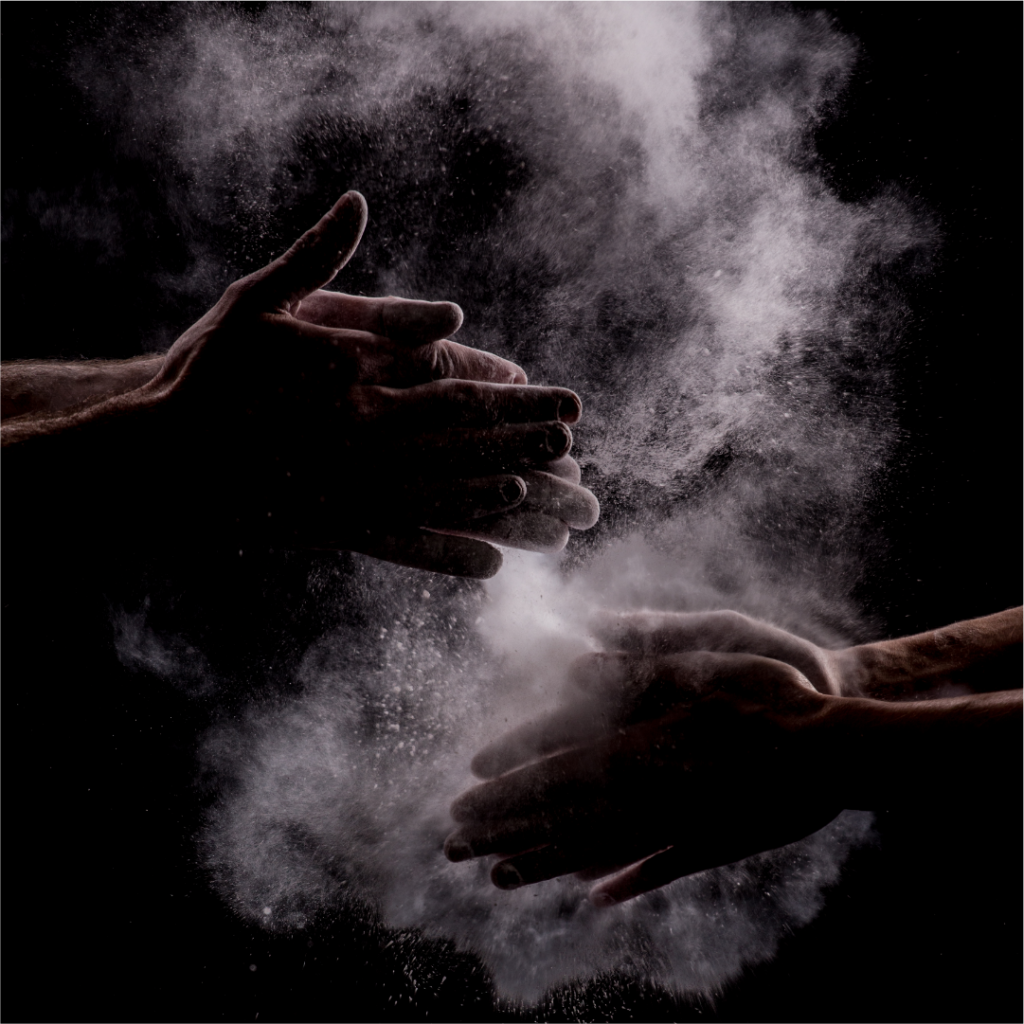Dry chalk is back at Hive Vancouver following the installation of specialized filtration from ClimbLab.
After thorough research, we are confident that the recent installation of a new air filtration system is effective enough in managing airborne chalk that The Hive Vancouver can reintroduce powdered chalk as an option, to improve the climbing experience while maintaining air quality for staff working in this location.
For those with health concerns, we have outlined below key components of the decision process and the details on chalk particulate related to the impacts of the new filtration system as an addition to several other upgrades.
Air Quality Improvements at Hive Vancouver
- Several changes have been made to our HVAC system which have improved the air quality, with 3 different system components addressed.
- What seems to be the ultimate solution has been found with ClimbLab — a climber-owned company from Denmark who manufacture electrostatic filters that reduce airborne chalk dust in climbing gyms. Following extensive consultation and research we have installed several units at Hive Vancouver. We believe these units will provide what we need to reintroduce dry chalk at our facility.
Feedback from the Community
- It’s no secret that our ‘liquid chalk only’ rule is very unpopular due to its negative impact on the climbing experience of many users
- In late 2022 we conducted a community survey asking folks about their chalk use, preferences, and concerns about environmental factors (air quality)
- The importance of chalk in the climbing experience is clear, with approximately 1,600 respondents weighing in – much higher than similar surveys in the past.
- Over 80% of respondents listed some form of dry chalk (loose, chalk ball or block, or a combination of liquid and dry chalk) as their preferred form of chalk when climbing
- Over 70% listed the same for chalk used when training
- Only 10% listed liquid chalk only as their preference
- Liquid-chalk-only makes it extremely difficult to clean holds as effectively as at facilities with mixed/dry chalk use, despite using some of the best industry-standard methods
- Moonboard is notably a worse experience as a result, reported by many many guests and staff members
- Poorer friction/grip may result in greater likelihood of popping off small holds, which could potentially increase risk of injury to the climber – always an important concern.
Research and Consultation
- We consulted several local HVAC contractors to hear their thoughts on the effectiveness of electrostatic air cleaning devices. One suggested such a solution without knowledge of Climblab or it’s products, and both felt that the solution was our final remaining option to try
- We met with the founder and head engineer at Climblab to discuss their solution, and whether they could meet the needs of our aging facility
- We checked out other gyms with similar constraints, already using these solutions; speaking to their staff and management about the efficacy of the filters revealed positive results
- Climblab reviewed our HVAC system, our gym space and footfall and recommended the installation of an appropriate number of the ‘eAir 2’ units.
- We chose to purchase the recommended number of units for the climbing space with an additional unit for installation in the lobby, where staff spend a large portion of their shifts.
What are these air filters going to do?
- Installing the Climblab eAir 2 filters will further improve air quality in the space and support the reintroduction of dry chalk options:
- They’ll improve air quality by reducing airborne particulate matter. eAir filters are built specifically for removing chalk dust in climbing gyms
- The efficiency of the filters on fine, suspended dust is very high: >90%
- The location of these filters has been strategically determined to maximize their efficiency and effectiveness, as recommended by ClimbLab
- Climblab guarantees up to a 70% reduction in airborne chalk dust levels
Context: Chalk particles and Climblab eAir filters
- Chalk particles come in different sizes
-
- 2.5-10 micrometer – or fine – particles are the size most commonly encountered in climbing gyms
- Climblab filters are effective for both fine and ultrafine particles
-
- Heavier particles – 5-10 micrometers – tend to fall onto the mat surface (think visible chalk dust on the mat tops that we would vacuum up)
- Smaller, finer particles – 2.5-5 micrometer – tend to remain airborne throughout our busy periods
- More people on the space using chalk
- They are blown upwards by fans
- Agitated on the mats by falling/walking climbers
- Lifted higher in the air by rising warm air
- Smaller, finer particles – 2.5-5 micrometer – tend to remain airborne throughout our busy periods
- This is the ‘haze’ that is commonly encountered in busy climbing gyms – fine airborne particles which settle over time when the environment is still (after closing and overnight) and increase during peak hours as movement/use increases
- Climblab filters are very effective in dealing with this ‘haze’—their electrostatic filters work by electrically charging the chalk dust particles and then catching them on negative collection plates inside the units
Limitations of Climblab E-Air filters
- Climblab units are not as efficient in capturing larger particles – only 50% of PM10 particles (<10 micron) are captured on average
- Chalk eaters and our HVAC units which both use traditional media filters are much better at this, capturing up to 80% of PM 10 particles
- We’ll be increasing our Chalk Eater usage, running all machines 24/7
- Remaining large particles of PM 5-10 fall to the ground
- Spills with large particles will still be dealt with the old fashioned way.
We hope this information supports those with health concerns in making an informed decision for themselves as we move forward to the reintroduction of dry chalk as an option for the climbers in our Hive Vancouver Bouldering Gym.


